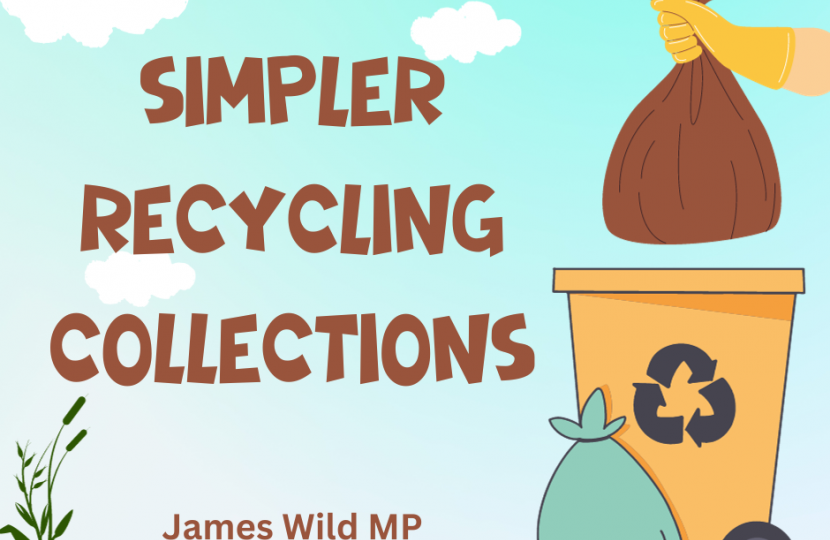
Reforms to household and business bin collections and a crackdown on waste carriers will boost recycling rates and protect the environment
Reforms to household and business bin collections and a crackdown on unscrupulous waste carriers will boost recycling rates and protect the environment, the Government announced today.
A new, simpler common-sense approach to recycling means people across England will be able to recycle the same materials, whether at home, work or school, putting an end to confusion over what can and can’t be recycled in different parts of the country.
Weekly collections of food waste will also be introduced for most households across England by 2026 – ending the threat of smelly waste waiting weeks for collection and cutting food waste heading to landfill. This will also stop a trend towards three- or four-weekly bin collections seen in some local authorities across the UK.
The government is proposing new exemptions to make sure that waste collectors will be able to collect dry recyclables together, in the same bin or bag, and collect organic waste together, to reduce the number of bins required.
As previously confirmed by the Prime Minister, the new plans for simpler recycling will make sure that households will not need an excessive number of bins. The reforms will bring in a more convenient and practical system which prevents councils from being hit with extra complexity, while making sure all local authorities collect the required recyclable waste streams: glass; metal; plastic; paper and card; food waste; and garden waste.
This means manufacturers can design packaging and know it can be recycled across the nation, ensuring there is more recycled material in the products we buy and allowing the UK recycling industry to grow.
The plans will help ensure that households benefit from frequent and comprehensive rubbish and recycling collections wherever they live across England, with the new weekly food waste collections and the proposal to include in guidance an expectation that residual rubbish is collected at least fortnightly, helping avoid long waits for smelly waste to be removed. Government will also work with local authorities to assess the collection of residual waste more frequently, especially in urban areas.
The plans will apply to all homes in England, including flats. Similar measures will apply to non-household municipal premises, including businesses, hospitals, schools and universities.
In addition to these measures, the Government will continue to drive forward efforts to make waste collections simpler across the country by launching a four-week consultation on expanding the definition of non-household municipal premises – so that places of worship, prisons, charity shops and residential hostels could also be covered by the rules.
These plans will be supported by a major new effort to clamp down on untrustworthy waste operators and ensure that our waste ends up where it’s supposed to be. This includes increasing background checks for firms who move or trade waste, to make it harder for rogue operators to find work and easier for regulators to act against criminals. Plans to overhaul the current system for tracking how waste is handled will also improve the way data is currently collected, strengthening regulators’ abilities to detect waste crime through a new system for digital waste tracking which will record information from the point it is produced to the point it is disposed of – giving them the evidence they need to hold criminals to account.
Today’s package builds on wider efforts to increase recycling and reduce waste. New restrictions on single-use plastic plates, trays, bowls, cutlery, balloon sticks, expanded and extruded polystyrene food and drinks containers came into force on 1 October in order to reduce plastic pollution and keep streets clean. We are also moving forward with the implementation of our Deposit Return Scheme for drinks containers and our Extended Producer Responsibility scheme for packaging to boost recycling and clamp down on plastic pollution and litter.
Meanwhile, our single-use plastic carrier bag charge has successfully cut sales by over 97% in the main supermarkets.

